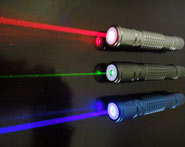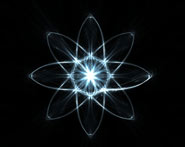


 الفيزياء الكلاسيكية
الفيزياء الكلاسيكية
 الكهربائية والمغناطيسية
الكهربائية والمغناطيسية
 علم البصريات
علم البصريات
 الفيزياء الحديثة
الفيزياء الحديثة
 النظرية النسبية
النظرية النسبية
 الفيزياء النووية
الفيزياء النووية
 فيزياء الحالة الصلبة
فيزياء الحالة الصلبة
 الليزر
الليزر
 علم الفلك
علم الفلك
 المجموعة الشمسية
المجموعة الشمسية
 الطاقة البديلة
الطاقة البديلة
 الفيزياء والعلوم الأخرى
الفيزياء والعلوم الأخرى
 مواضيع عامة في الفيزياء
مواضيع عامة في الفيزياء|
أقرأ أيضاً
التاريخ: 31-8-2017
التاريخ: 17-5-2017
التاريخ: 8-9-2017
التاريخ: 29-12-2016
|
We have implied that it is convenient if we start with some standard unit of time, say a day or a second, and refer all other times to some multiple or fraction of this unit. What shall we take as our basic standard of time? Shall we take the human pulse? If we compare pulses, we find that they seem to vary a lot. On comparing two clocks, one finds they do not vary so much. You might then say, well, let us take a clock. But whose clock? There is a story of a Swiss boy who wanted all of the clocks in his town to ring noon at the same time. So, he went around trying to convince everyone of the value of this. Everyone thought it was a marvelous idea so long as all of the other clocks rang noon when his did! It is rather difficult to decide whose clock we should take as a standard. Fortunately, we all share one clock—the earth. For a long time, the rotational period of the earth has been taken as the basic standard of time. As measurements have been made more and more precise, however, it has been found that the rotation of the earth is not exactly periodic, when measured in terms of the best clocks. These “best” clocks are those which we have reason to believe are accurate because they agree with each other. We now believe that, for various reasons, some days are longer than others, some days are shorter, and on the average the period of the earth becomes a little longer as the centuries pass.
Until very recently we had found nothing much better than the earth’s period, so all clocks have been related to the length of the day, and the second has been defined as 1/86,400 of an average day. Recently we have been gaining experience with some natural oscillators which we now believe would provide a more constant time reference than the earth, and which are also based on a natural phenomenon available to everyone. These are the so-called “atomic clocks.” Their basic internal period is that of an atomic vibration which is very insensitive to the temperature or any other external effects. These clocks keep time to an accuracy of one part in 109 or better. Within the past two years an improved atomic clock which operates on the vibration of the hydrogen atom has been designed and built by Professor Norman Ramsey at Harvard University. He believes that this clock might be 100 times more accurate still. Measurements now in progress will show whether this is true or not.
We may expect that since it has been possible to build clocks much more accurate than astronomical time, there will soon be an agreement among scientists to define the unit of time in terms of one of the atomic clock standards.



|
|
|
|
دراسة يابانية لتقليل مخاطر أمراض المواليد منخفضي الوزن
|
|
|
|
|
|
|
اكتشاف أكبر مرجان في العالم قبالة سواحل جزر سليمان
|
|
|
|
|
|
|
اتحاد كليات الطب الملكية البريطانية يشيد بالمستوى العلمي لطلبة جامعة العميد وبيئتها التعليمية
|
|
|